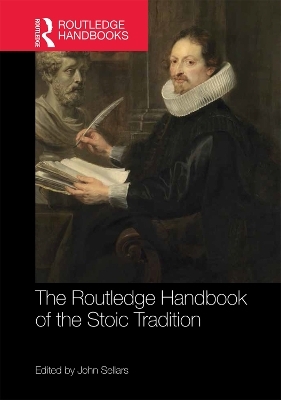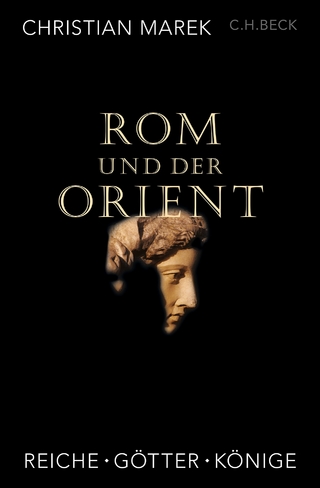
The Routledge Handbook of the Stoic Tradition
Routledge (Verlag)
978-0-415-66075-4 (ISBN)
The ancient philosophy of stoicism has been a crucial and formative influence on the development of Western thought since its inception through to the present day. It is not only an important area of study in philosophy and classics, but also in theology and literature.
The Routledge Handbook of the Stoic Tradition is the first volume of its kind, and an outstanding guide and reference source to the nature and continuing significance of stoicism. Comprising twenty-six chapters by a team of international contributors and organised chronologically, the Handbook is divided into four parts:
Antiquity and the Middle Ages, including stoicism in Rome; stoicism in early Christianity; the Platonic response to stoicism; and stoic influences in the late Middle Ages
Renaissance and Reformation, addressing the impact of stoicism on the Italian Renaissance, Reformation thought, and early modern English literature including Shakespeare
Early Modern Europe, including stoicism and early modern French thought; the stoic influence on Spinoza and Leibniz; stoicism and the French and Scottish Enlightenment; and Kant and stoic ethics
The Modern World, including stoicism in nineteenth century German philosophy; stoicism in Victorian culture; stoicism in America; stoic themes in contemporary Anglo-American ethics; and the stoic influence on modern psychotherapy.
An invaluable resource for anyone interested in the philosophical history and impact of stoic thought, The Routledge Handbook of the Stoic Tradition is essential reading for all students and researchers working on the subject.
John Sellars is a Lecturer in Philosophy at Royal Holloway, University of London, and a Visiting Research Fellow at King’s College London, UK. He is the author of The Art of the Living: The Stoics on the Nature and Function of Philosophy (2009), and Stoicism (Routledge, 2006).
Introduction John Sellars
Part 1: Antiquity and the Middle Ages
1. Stoicism in Rome Gretchen Reydams-Schils
2. Stoicism in Early Christianity Troels Engberg-Pedersen
3. Plotinus and the Platonic Response to Stoicism Lloyd Gerson
4. Augustine’s Debt to Stoicism in the Confessions Sarah Byers
5. Boethius and Stoicism Matthew Walz
6. Stoic Themes in Peter Abelard and John of Salisbury Kevin Guilfoy
7. Stoic Influences in the Later Middle Ages Mary Beth Ingham
Part 2: Renaissance and Reformation
8. The Recovery of Stoicism in the Renaissance Ada Palmer
9. Stoicism in the Philosophy of the Italian Renaissance Jill Kraye
10. Erasmus, Calvin, and the Faces of Stoicism in Renaissance and Reformation Thought Barbara Pitkin
11. Justus Lipsius and Neostoicism Jacqueline Lagrée
12. Shakespeare and Early Modern English Literature Andrew Shifflett
Part 3: Early Modern Europe
13. Medicine of the Mind in Early Modern Philosophy Guido Giglioni
14. Stoic Themes in Early Modern French Thought Michael Moriarty
15. Spinoza and Stoicism Jon Miller
16. Leibniz and the Stoics: Fate, Freedom, and Providence David Forman
17. The Epicurean Stoicism of the French Enlightenment Edward Andrew
18. Stoicism and the Scottish Enlightenment Christian Maurer
19. Kant and Stoic Ethics José Torralba and Daniel Doyle
Part 4: The Modern World
20. Stoicism in Nineteenth Century German Philosophy Michael Ure
21. Stoicism and Romantic Literature Simon Swift
22. Stoicism in Victorian Culture Heather Ellis
23. Stoicism in America Kenneth Sacks
24. Stoic Themes in Contemporary Anglo-American Ethics Christopher Gill
25. Stoicism and Twentieth Century French Philosophy Thomas Bénatouïl
26. The Stoic Influence on Modern Psychotherapy Donald Robertson.
Index
| Reihe/Serie | Routledge Handbooks in Philosophy |
|---|---|
| Verlagsort | London |
| Sprache | englisch |
| Maße | 174 x 246 mm |
| Gewicht | 908 g |
| Themenwelt | Geschichte ► Allgemeine Geschichte ► Altertum / Antike |
| Geisteswissenschaften ► Philosophie ► Ethik | |
| Geisteswissenschaften ► Philosophie ► Philosophie Altertum / Antike | |
| Geisteswissenschaften ► Religion / Theologie | |
| ISBN-10 | 0-415-66075-0 / 0415660750 |
| ISBN-13 | 978-0-415-66075-4 / 9780415660754 |
| Zustand | Neuware |
| Informationen gemäß Produktsicherheitsverordnung (GPSR) | |
| Haben Sie eine Frage zum Produkt? |
aus dem Bereich


